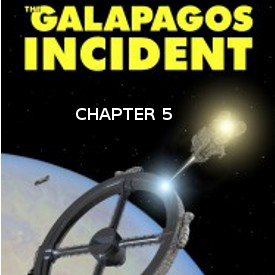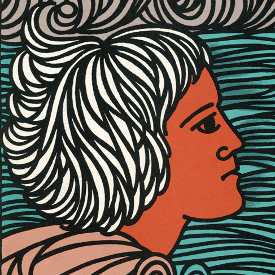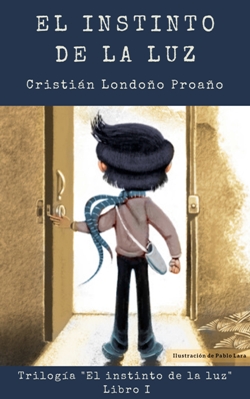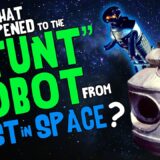PROLOGUE
IN THE NEST
Saturday, June 16, 2018
It’simpossibletoknowanotherperson,isn’tit?Tosteppastthat lockeddooroftheirsecretiveinnerself.Sure,youmightsuspect youcan,evenbroadcastthatsuspiciontotheworld: My best friend and I are so tight that we finish each other’s sentences.
But honestly, do you even want to know? What if science found a way—and science is always finding ways—to string two brains together? What if you could hear the running hum of your closest friend’s thoughts? What if you find out she lusts to skin you alive, har- vesting Kleenex-sized sheets of flesh to consume like Fruit Roll-Ups? But I bet it would be a drabber truth. You’d find out she just doesn’t hold that special space in her heart for you, the one you hold for her.
If that’s what’s in her head, it’s better off not knowing, right? “. . . better to stay conned.”
My voice is a dusty croak. Have I been talking to myself again?
You got to pull yourself together, Meadow. You’ll never get into college acting like this.
Tony Soprano’s sitting in the darkened office whose door faces the basin sink I’m slumped against. Kicked back with his shoes on the desk, legs crossed in a pair of khaki slacks, mustard-yellow bowling shirt, puffing on a Montecristo cigar.
Tony tsks. You’re about as goofy as a bedbug, Mead. Smarten up, daughter of mine.
Apparently, my brain’s summoned Tony out of some psycholog- ical backwater to push my gathering insanity away. Why my id chose a sociopathic New Jersey mob boss in my time of need is a question best left unanswered.
You’re getting as bad as my great-aunt Wanda. Tony takes a haul on his cigar, its cherry glowing. She used to chase terriers around Liberty State Park, foaming at the mouth.
“I’m not your daughter, Mr. Soprano. I don’t look anything like her.” Hopping off the sink, I head down the tiled hallway to a set of double doors marked loading bay. They’re locked shut. Just a regular old Master Lock, the brand gracing lockers in schools crisscrossing
this great land of ours.
A pair of bloody combination wrenches lie on the floor. I’d scrounged them from a toolbox in the same office Tony’s now oc- cupying. For hours, or what feels like, I’ve been trying to use the wrenches to snap the Master Lock.
Past these loading bay doors, unless someone’s played another rotten trick, lies freedom.
We find our heroine, one Margaret June Carpenter, picking up those wrenches for the latest in a series of futile attempts to escape her prison—which, just to get the facts straight, is the banquet kitchen of the St. Catharines Golf and Hunt Club.
YouTube provided the idea. Some survivalist neckbeard in a flan- nel shirt. How to Break ANY Lock! I’d watched the video while tucked behind the industrial dishwasher, making sure the phone’s volume was dialed way down.
According to the video, all I’ve got to do is sock the rounded head of each wrench into the metal U of the lock, then squeeze the wrenches together until the shackle snaps. Easy as shit through a goose, so says Mr. Neckbeard.
I give it yet another go. The wrench handles pinch my palms as I struggle to close the distance between them . . . My hands don’t hurt anymore: they’ve gone numb, the joints now oiled with blood—
The wrenches slip in the lock’s hasp and snap on my fingers, flaying more skin off my knuckles. Dipping my head, I toss a question to the universe.
“So, you’re telling me I’m gonna die in here?”
Instead of the voice of the cosmos, Tony’s drifts down the hall.
Oh, poor baby. What do you want, a pat on the head? I can picture Tony’s plump rosebud lips blowing a raspberry.
Dropping the wrenches, I hunch back through the kitchen, keeping my profile below the line of the porthole window that looks out into the ballroom. The light hangs thinly in that nightmarish space, which I’m separated from by a flimsy two-inch-thick lami- nate door.
. . . I can hear things breathing out there. At least I think that’s breathing. A hissing, zippering rasp coming from under the door—
Something passes through the air right behind me.
I duck, stifling a screech as it arrows overhead, close enough to lift the feathery strands of my hair.
The air goes leaden. My head swivels in syrupy slow motion— To the walk-in freezer.
I checked it out hours ago. Frozen fish fillets, McCain fries, hash brown hockey pucks. I’d left the door ajar, thinking I could lock my- self in if something busted the kitchen door down and came sham- bling in from the ballroom. Sure, I’d probably freeze to death, but there were worse ways to go.
After that, I’d plugged up every entry point I could find. Stuffed tea towels down the sink drains. Slapped duct tape on the hood vents. Wadded rags under that swinging porthole door leading to the ballroom—that was my first move, as soon as I dead-bolted it.
Why all of this, you might ask?
Because death was throwing an unspeakable rager out in that ball- room. A party that, each time I gaze out at it—and I can’t stop, same as how I couldn’t stop scratching at the poison ivy I’d picked up down at Martindale Pond, rashing it all over my ass—a little piece of my mind goes screaming off into the dark.
Except I’d forgotten to shut the freezer door. I assumed it’d be too cold.
Too cold for the wasps.
This wasp—there’s only one so far—banks sharply, wings glitter- ing. For an instant I think it’s oriented on me, but instead it switches course to settle atop the office door.
I don’t dare move. If I do, the wasp will spot me with its disco-ball eyes. But what if this one is a scout? Once it sends word back to its nest-mates—and it has billions, if not trillions—the kitchen air will be alive with them, too thick to breathe.
Forcing my knees to unlock, I slide my right foot over the tiles. The wasp’s wings burr—the sound of a thumb riffling a paperback book—but it doesn’t take flight.
Oooh, that’s one mean bastard, ain’t it?
From his office seat, Tony seems unfussed by the wasp. Say, I bet it’d sting you six ways from Sunday.
Ten steps separate me from the freezer. I try to progress without giving the impression of movement. I am the wind on a summer’s day. A glacier melting too slow for a human or insectoid eye to see.
Noises from inside the freezer. A bristling, angry hum.
My shoulders jerk, adrenaline spiking. One foot in front of the other, left, right, left, right, I’m getting there . . . gripping the freezer’s handle, I set my shoulder to the door. Can’t slam it, though every atom in my body wants to. The noise is liable to set the scout wasp off. The hum gathers to an agonizing pitch. I imagine wasps crawling from a busted cooling pipe in the freezer, their thumb-sized bodies
clinging to the frost-pebbled meta—
Click.
A heartbeat after the lock catches, they’re ricocheting off the in- side of the freezer door: pok! pok!, balls of aluminum foil launched with a slingshot.
Jaw clenched, our heroine manages not to scream. Now, did a drop or three of pee squirt into her underwear? Not gonna lie, yeah, that probably happened.
When I hunt for the scout wasp, I’m dismayed to discover it’s not where it was. I drop into a crouch, eyes dodging wildly . . . a muffled buzz from the office.
Taking frictionless steps, I feel myself not walking so much as being pulled across the kitchen; it’s as though I’m locked onto a con- veyor belt, winched relentlessly forward.
I can’t see the wasp through the glass fronting the top half of the office door, but I can hear the drumbeat of its wings. Tony’s still be- hind the desk, except now his face is the enameled shell of a wasp. His chest strains against his shirt buttons, the stout cask of a wasp’s thorax.
I got my eyes on you, Mead, Wasp-Tony purrs. Gripping the knob, I ease the office door shut.
The moment the hasp clicks, the wasp smashes into the glass. Its wings scissor, zzz-zzz, beating not with the dopey confusion of a bluebottle fly but in crazed anger. Its stinger is a silvery sewing needle; it tinks off the pane.
Its attack is aimed at eye level. If that glass wasn’t there, that’s what it’d go for, wouldn’t it? My eyes. Try to blind me. This comes as no shock.
I’d seen these things at work already, out in the ballroom. Hours ago, before I’d gotten myself trapped in here. As I was trucking at a dead sprint toward this very kitchen as everything had gone haywire—a rip in the fabric of reality, my terror so intense that every sense got heightened.
I saw a man in a turquoise suit squeezing one of these wasps in his hand, his grip tight enough to crack a walnut—then another flew at his face, landing on his naked eyeball. The man’s eyelid flapped uselessly against the wasp, trying to shut like an elevator with a filing cabinet jammed between its doors; the wasp’s stinger jabbed into the man’s eyeball, which collapsed, some of it spilling down his cheek like curdled egg white as the rest foamed in his socket with the velvetiness of my father’s Gillette shaving cream from a spray can.
The wasp gives up or gets bored. It buzzes away from the office door. My heart claws down out of my throat. I can see it on the desk blotter in there, perched on the clear barrel of a Bic pen.
Crossing back to the freezer, I jam more rags into the eighth-inch gap between the bottom of its door and the floor, stuffing them tight using the tip of a butter knife.
Will they freeze in there? I don’t think so. These bastards are tough. Pressing my ear to the door, I listen to their pissed-off buzz—
POK!
I rear back, one hand slapping my ear. For an instant, my brain tells me that I’ve been stung right through the door, but no, no—
“You’re okay.” My voice is not at all steady.
Sure, Mead. You’ve got this little caper on a string.
“Oh, fuck off, Tony.” I unleash a mad shriek of mirth. The wasps respond by pelting the freezer door in a frenzy.
When they finally settle, I catch another noise. A much more worrisome one. The gaunt, somehow hungry scratching of finger- nails.
It’s coming from the other side of the kitchen door.
Oh fuck oh fuck oh fuck me . . .
Breath bottomed out, I wait to see if anything will appear at the porthole, peeking in from the ballroom . . . a face greenly bloated with venom, goggling back and forth like a jack-in-the-box on a coiled spring—
Nothing appears, but that kittenish scratching persists. Could it be Harry? God, I hope not. I hope Harry’s dead. I mean, for Harry’s own sake I hope that.
The one thing I shouldn’t do is go look through the porthole. One-hundred-percent no. But it’s like telling myself not to scratch that poison ivy, to not doomscroll my Instagram (@LlamaDelRay), Twitter (@ChigurhWasFramed), TikTok, my YouTube account.
There’s nothing nourishing there, I’d tell myself. It’s all sick meat.
But in the end, I’m no better than a bug to a zapper.
When I take a peek into the ballroom, not much is moving out there. The fundraiser guests and the policemen are still lying under the tables. If not, they’re slumped against the walls like sacks of pot- ting soil. Fangs of char climb the walls. I never saw how the fire started—it had been one chaotic element among many when the shit truly hit the fan—but it only raged hotly for a few minutes before petering out.
The yellowy stink of that fire crawls under the door. The soggy reek of mulched leaves and a fricasseed top note that reminds me of the spring buck hunt. Every year the men of the Woody Knot trailer park set off in a checker-shirted, fur-hatted flotilla, returning drunk and stinking of gunpowder with some poor deer splayed across the hood of a shitkicker pickup. The guys would field-dress it down by the water, near a bonfire. All the parts they couldn’t use—the bones and viscera and testicles, or buckyballs as they were known—got tossed on the fire. You could hear those buckyballs explode on the coals as sharply as Black Cat firecrackers.
My eyes snag on her. The Queen.
She sits atop a makeshift throne at the farthest edge of the ball- room. Some part of her moved; on another, saner timeline I’d’ve guessed it was her arm, but there were other parts of her now, parts I’d never known her to possess. Parts no human could possess.
The wasps in the ballroom stir at her command. They thunder up around the throne in a hazy cone, webbing out across the ceiling.
Pikachu!
The digitized chirp had come from inside the office.
Backtracking over the kitchen, I spotted the iPhone on the desk inside the office. Tony had vanished but the wasp is still in there.
Shit, shit, shit.
That phone represented my frail link to the outside world. And now the wasp owned it.
I rest my forehead against the door. “Our heroine has regrets.”
The wasp rockets right at me, smashing into the glass so hard that the vibration quivers across my brow. I flinch as the wasp’s stinger jabs and stabs, wings fluttering along the pane.
My jaw tenses. “I’m going to murder you.”
Gathering the dregs of my resolve, I grip the knob and ease the door open a quarter of an inch. My thumb acts as a stopper, prevent- ing the door from opening too far . . . the edge of the door sticks in the jamb, gritting threateningly, shit, shit . . . The wasp hurls itself at the glass, energized by this new development.
When I get the door open two-thirds of an inch, I settle my lips near to the gap I’ve created between its wooden edge and the frame, no more than a millimeter of open air, a millimeter I’m doing everything in my power to maintain . . .
. . . and I hum.
It’s hard to summon much vibration; my breath is jumpy, my lungs full of static spiders.
My hum attracts the wasp; it bumps along the glass to the door’s edge, zzz-zzz-ZZZ. The muscles cramp in my forearms from keeping the door pinned just so. I can partially see the wasp in that millimeter-thin slit between door and frame, its Brazil-nut body vi- brating like a tuning fork; I resist the urge to pull my lips away as it squirms deeper, squeezing into the space between the door and frame—its stinger scrapes against metal and I’m scared that it might elongate somehow, articulating on a ninety-degree angle to pierce my lips through that wafer-thin opening.
Oh so gently, I reapply pressure to the door. The hinges grit as the gap narrows . . . the buzzing cuts out. I can feel the wasp through the entirety of the door: its body now pinned between the wood and the frame. Trapped in the jaws of a vise.
The buzz rises. The fucker’s trying to wriggle out. Maddening, deafening, enraged—
I slam my shoulder into the door.
The crack is that of a glossy candy shell. A giant goo-filled M&M splintering.
When I open the door, the upper half of the wasp falls to the floor. It zizzes around and around, a shook-up Coke can stabbed with a nail. Worst part is, it’s still trying to sting me. Even though the part of its anatomy required for that is now paste in the doorjamb.
I step on it. Crunch. Very satisfying.
I retrieve the phone from the office desk. Opening YouTube, I surf the main broadcast feeds . . . CNN, ABC, CBC, NBC, FOX. Every news camera on earth is pointed at the St. Catharines Golf and Hunt Club, which by now is beginning to resemble a madman’s idea of a sandcastle.
And in there somewhere, watching her predicament worsen on live TV, is our heroine. Margaret Carpenter, the girl in the nest.
T
he kitchen lights flutter. Are the wasps chewing on the power lines? They can do what they did in light or darkness, surely it makes no difference to them. But me? If the lights go out, trapping me with that blackening buzz . . .
Exiting the office, I return to the kitchen door. To the porthole.
The atmosphere in the cathedral-like ballroom is somber, brown,
the air salted with wasps that flit above the few tables that haven’t been digested into pulp. Light seeps through the skylight, but most of its panes are now covered with the carbuncled comb of the nest. The ballroom’s main doors are encased in a slope of nest material, pocked by funneled exits or maybe entrances, papery and baffling like the webs of trapdoor spiders.
Something begins to move out there. I screw my eyes into the murk, trying to figure out what . . . oh Jesus. No. No.
It’s the guests.
They’ve begun to give birth.
I guess you’d say that’s what they’re doing. I can only force my- self to watch the first, my tongue stapled to the roof of my mouth in horror.
That one is a woman, beautiful in an old-movie-star kind of way. She’s watching me. She’s not quite dead, though I’m sure we both wish she were. Her stare has the eeriness of a portrait’s eyes tracking you from inside the frame.
She’s up on her knees, spine ramrod straight. Her fingers quiver at her sides. Something’s moving behind her wide-open eyes. Larval twitches and scurries, the kind a pollywog makes as it cracks out of its egg sac.
Her throat swells. I picture a golf ball pushed through a garden hose. She gags silently, lips stretched into a sick head-splitting grin as some horrid interior pressure forces her mouth open. What I spy (with my little eye, goes a queasy voice in my head) through her spread teeth reminds me of a subway train flashing under a side- walk grate, a thundering glimpse of a great ribbed engine racing past (something that is red). It tears up her ballooning neck, shredding her soft palate and breaking her jaw—her lower teeth get shoved out three inches past her bottom lip, the look of a sprung typewriter carriage—as something thick and tendon-cabled slams into the roof of her mouth. The woman’s head snaps back as whatever’s in- side her flexes in a vicious corkscrew that cores through the fragile obstruction as it enters the vault of her skull, funneling into her head, the warm memory-rich oatmeal of her brain, her skull bulg- ing so obscenely that her eyes drift apart, the sockets splintering and compressing in horizontal slits until her eyeballs burst, her nose flattening as her skull continues to expand, the bone held in check by the elasticity of her skin—finally, I catch a raw flapping, the sound bleeding past the tea towels plugged under the door: the snap of wet laundry in a high wind that is in fact her unrooted tongue, thick and purple as a skinned snake, flapping against her cheek.
For a heartbeat, it’s as if the woman and I swap bodies. I can taste the thing inside her on my own tongue . . . the rasp of its ungodly body against my taste buds, a sensation that registers as petting a cat’s fur in the wrong direction—
A barbed appendage stabs through the top of the woman’s head. Retreating, it punches out again and again and again. The relentless pump of a piston. The woman’s skull comes apart with each puncture, her scalp separating from the underlying bone and peeling down her forehead and the back of her neck in ribbons.
A creature that seems to be almost all mouth tears its way out the top of her head. Its roach-colored appendages find purchase on the shifting slob-ice of her skull as it puuushes itself out the same way you’d shimmy out of a pair of ass-hugging jeans.
The woman’s torso caves in, her skin wadding up as her chest folds like a squeezed accordion. She folds again, backward this time, her spinal column bowing gruesomely, her ribs punching through the front of her little black dress as the thing sluices out of her, a tendon-slabbed shucked oyster.
The worst part isn’t even that, though. It’s that when the thing comes out of her, knobbed with wet gristle and trailing bluish veins, it comes out eating.
Once I witness that, I back away from the porthole, retching. All
I cough up are strings of bile. I crawl onto the countertop and picture myself in a coffin six feet underground. Rather that than this. Rather there than here.
But before I do that, my eyes flee to the porthole one last time.
I see someone out there I used to know. Allan Teller, a boy I’d grown up with. Allan’s eighteen years old. A senior at Northfield High, same as me.
Unlike me, Allan’s capering on the ballroom floor, naked and threadbare, smeared in a substance that looks like crankcase oil but is probably something far worse.
I used to be partners with Allan in sixth-grade science, a million years ago. Allan had scorched his hand on the Bunsen burner and whimpered like a little bitch, sucking his fingertips.
Allan is down on all fours, snaffling at what’s left of the woman in the black dress. Seizing her in his jaws, he shakes his vein-threaded skull, a terrier with a chew toy; a rag of organ meat bounces off his cheeks like a paddle ball, painting his face with blood.
Next, Allan squints into the light streaming through the port- hole: it casts a funnel into the ballroom, the beam of a lighthouse. He looks shriveled in it, his sticklike arms seized with tremors: the look of a bug when you lift the rock it’s been hiding under, half-pupated, covered in cottony webbing.
I note that Allan Teller’s privates are no more. Two hardened, beef-jerky-like prongs jut between his thighs. His seminal vesicles, if I recall my ninth-grade sex-ed poster correctly. But to me they look like antennae . . . as if a massive ant has crawled inside him, its feelers piercing the walls of his bladder to wriggle between his legs.
“Oh, fuck me, Allan,” I hear myself say, clinging to the bitter dregs of my sanity. “Who did that to you?”
Except I know exactly who. She’s out there with Allan and the trilobite-like thing that was once Chad Dearborn and Will Stinson, now a serpentine freight train patrolling the shadowy scrim of the ballroom.
The Queen’s eyes—those complex, inhuman eyes—crawl over me. Our heroine, her moony face in the porthole.
That’ll be my best friend out there, watching me back.
Pikachu!
The new iPhone.
I pull it out of my pocket. It’s a text. From her.
Oh, this phone. This life-eating, sanity-destroying, motherfucking—
***
 Craig Davidson publishes horror under the name Nick Cutter
Craig Davidson publishes horror under the name Nick Cutter
You can learn more about him here on his website











